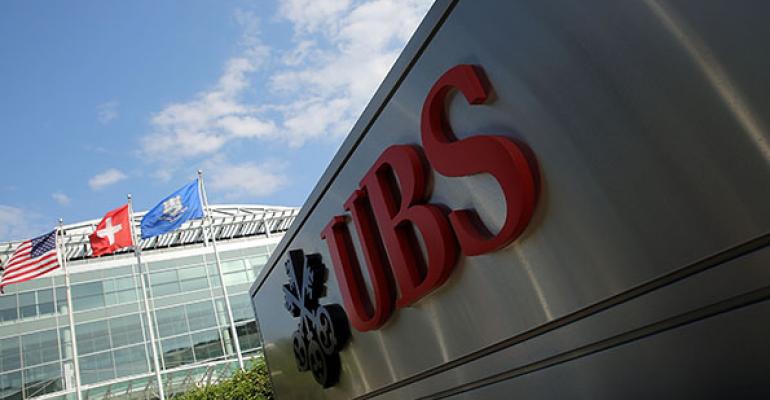Bloomberg) -- UBS is flashing its cash while rivals cut back. The Swiss bank's employees are in line for a 14 percent jump in bonus payouts, bucking the wider trend of bonus cuts at European rivals like Deutsche Bank and Credit Suisse, and a 9 percent drop in the average bonus on Wall Street last year.
This, on the surface, reflects a lot of good things about UBS's model. Chief Executive Sergio Ermotti made an early call to steer away from volatile investment banking and towards more dependable wealth management. Whereas Deutsche Bank, Credit Suisse and Barclays announced miserable losses for 2015, UBS delivered its best performance in five years with a 79 percent increase in net profit and a hike to the dividend.
There have been lean times in the past -- UBS has cut 10,000 jobs in the last three years and this is only the second annual increase to overall bonus payouts since 2010. Some reward is justified.
But UBS is not immune to the challenges ahead. It needs to keep a tight grip on staff costs and hiring levels even in the good years if it wants to outshine rivals in the bad.
The fact is that the overall direction of travel for UBS's costs as a proportion of revenue looks pretty worrying. That ratio went up every single quarter in 2015, almost hitting 100 percent in the last three months of the year. This may be more a reflection of revenue drying up than operational efficiency -- lower client activity in Asia and emerging markets hit the bank especially hard in the fourth quarter -- but given that this ratio is crucial to the bank's targets and investor sentiment, it doesn't look good.
This year is unlikely to offer much respite from those trends. Ermotti said this week that activity levels in investment banking had "slowed markedly" so far this year; as for wealth management, recovery in revenues has proved slow. UBS's investment-bank division generates the biggest slice of core revenue for the group; wealth management generates the biggest slice of profits. Both remain vulnerable to weak growth, financial-market volatility and sluggish trading activity.
To be sure, UBS stacks up well against its rivals and its shares have been rewarded as a result. Its capital strength is higher, its return on equity leads its peer group and analysts at HSBC reckon it can keep paying generous dividends while still hitting most of its operating targets by 2020. But it's notable that the analysts also think UBS will fail to meet its overall cost-to-income targets.
UBS is sailing close to the wind in terms of investor sentiment -- it can't afford to disappoint on performance. Its share price has outperformed that of peers on the back of improved profits, capital strength and dividend payouts. It looks richly valued with a price-to-book ratio of 1.1, putting it on a par with J.P.Morgan and Goldman Sachs rather than battered Barclays or Deutsche Bank. CEO Ermotti has burnished his reputation with his strategy so far -- losing the grip on costs might tarnish it.
It's clear that Ermotti is keenly aware of the need to keep cutting expenses. But that's also balanced by his desire to grow and invest at a time when rivals are retrenching. UBS has mopped up talent from Credit Suisse's pullback in North America and aims to double staff in China over five years. Last year, employee costs rose while other costs fell. Staff expenses might become a growing issue if the bank is seen falling short of its own high standards.
CEO Ermotti is clearly aware of the challenge -- he reiterated this week the need to keep focusing on execution of its cost-cutting program. But if the bank wants to continue teaching rivals a lesson, it can't relax on costs.
This column does not necessarily reflect the opinion of Bloomberg LP and its owners.
To contact the author of this story: Lionel Laurent in London at [email protected] To contact the editor responsible for this story: Jennifer Ryan at [email protected]

